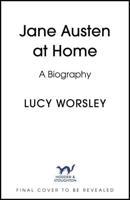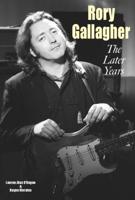Publisher's Synopsis
This book represents the twenty-second volume of what will ultimately be twenty-five volumes in a series of verbatim transcripts of the diaries of Howard Leopold Morry, written by him starting in 1939 and concluding with the last known volume in 1965.
The current volume is, slightly different than other volumes in that it includes an almost equal proportion of daily diary entries and Howard's reminiscences and anecdotes but it also includes several pages of transcriptions of old documents pertaining to the history of Ferryland and some folk-songs and poems.
In this twenty-second volume, the diary transcribed nominally covers the years from 1960 to 1966. But in point of fact this is not really the case. The first daily diary entries cover the period from March 1960 to August 1961. But there are no daily diary entries for the years from then until the resumption of daily diary entries in February 1966 and even then there are only a smattering of widely separated entries in that year culminating with the last entry on April 9, 1966. Some of the intervening years are covered at least partially in the diaries which form the basis of the remaining 3 Volumes in this series. But the gaps that do exist between 1961 and 1966, as well as the complete absence of any diaries after 1966 until the time of Howard's death in 1972 are believed to be explained by the loss or destruction of the diaries covering these periods. It is incomprehensible, in particular, that a man who kept meticulous diaries from 1939 to 1961 should not write any diaries in the last six years of his life when he was in reasonable health and had much more free time in which to do so.
Of the portions of the diary that constitute reflections on the past, many are a repetition of thoughts recorded in earlier diaries. For example, there is one lengthy section dedicated to Howard's memories of his time serving in the Newfoundland Regiment, which was covered in detail in two previous diaries and in part in several others. This was Howard's way of ensuring that these memories, which he felt were important in that they represented the views of an ordinary foot soldier and not those of an officer or military historian, must be preserved. But it also seems likely that this repetition constituted a form of therapy for Howard, banishing the demons of these terrible times and events.
One unique part of this diary is Howard's brief mention of several visits to his beloved Scotland, the home of his late wife, Fredris. He also makes mention, all to briefly unfortunately, of his taking part in the 45th anniversary visit to Beaumont Hamel by veterans of that awful battle. They were there for the opening of the new pavilion at the Beaumont Hamel Memorial Park.
This was the first time that a visit to this site had been organized for veterans since the end of the war.
Howard had given up active involvement in the fishery with the exception of an attempt, without much success, to fish for salmon. But he continued functioning at a much reduced level as a small scale farmer and livestock owner and also continued his work harvesting wood from the surrounding barrens and groves for a variety of purposes. But his age and increasingly limited mobility had reduced his efforts in these areas.
As in previous volumes, in order to provide readers not familiar with the "cast of characters" or the local and international historical events mentioned in the pages of the diary a clue to their identity, an extensive set of endnotes has been provided as an assistance in reading and fully understanding the context of the diary.









